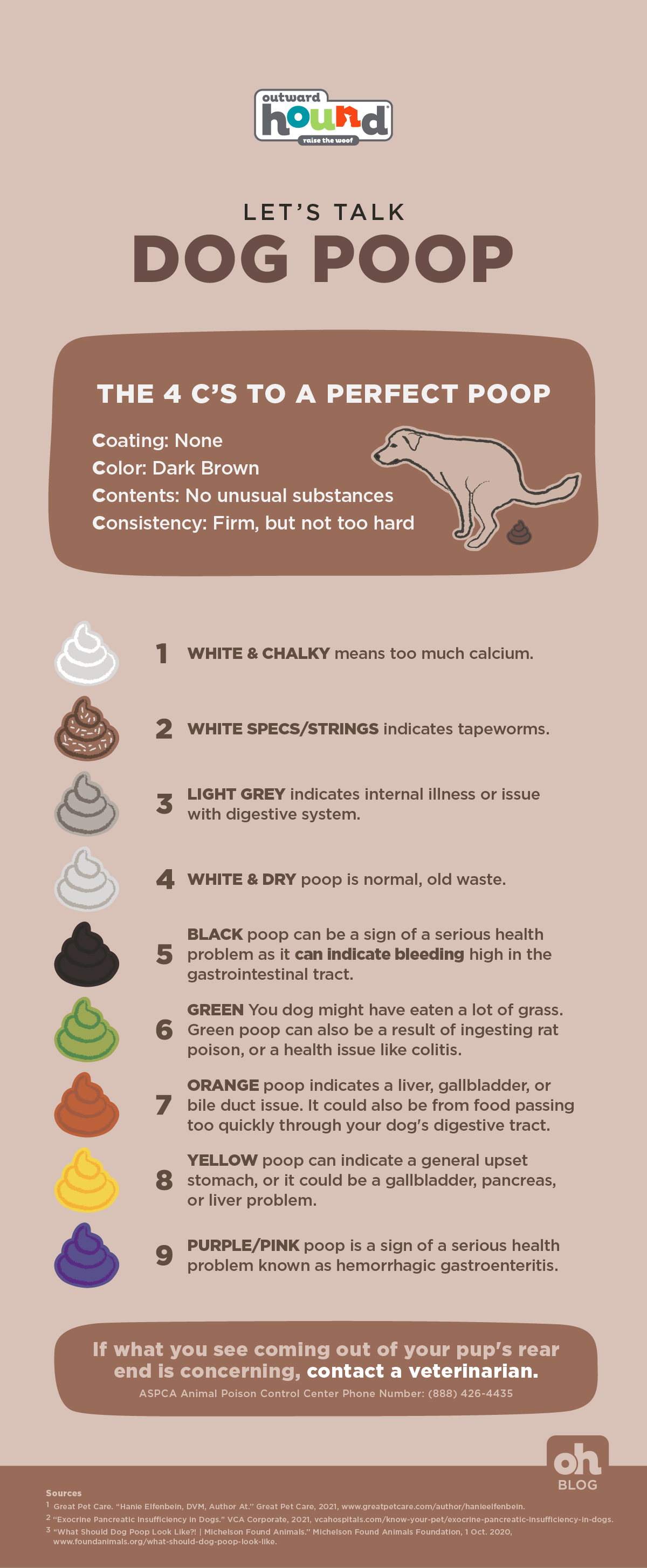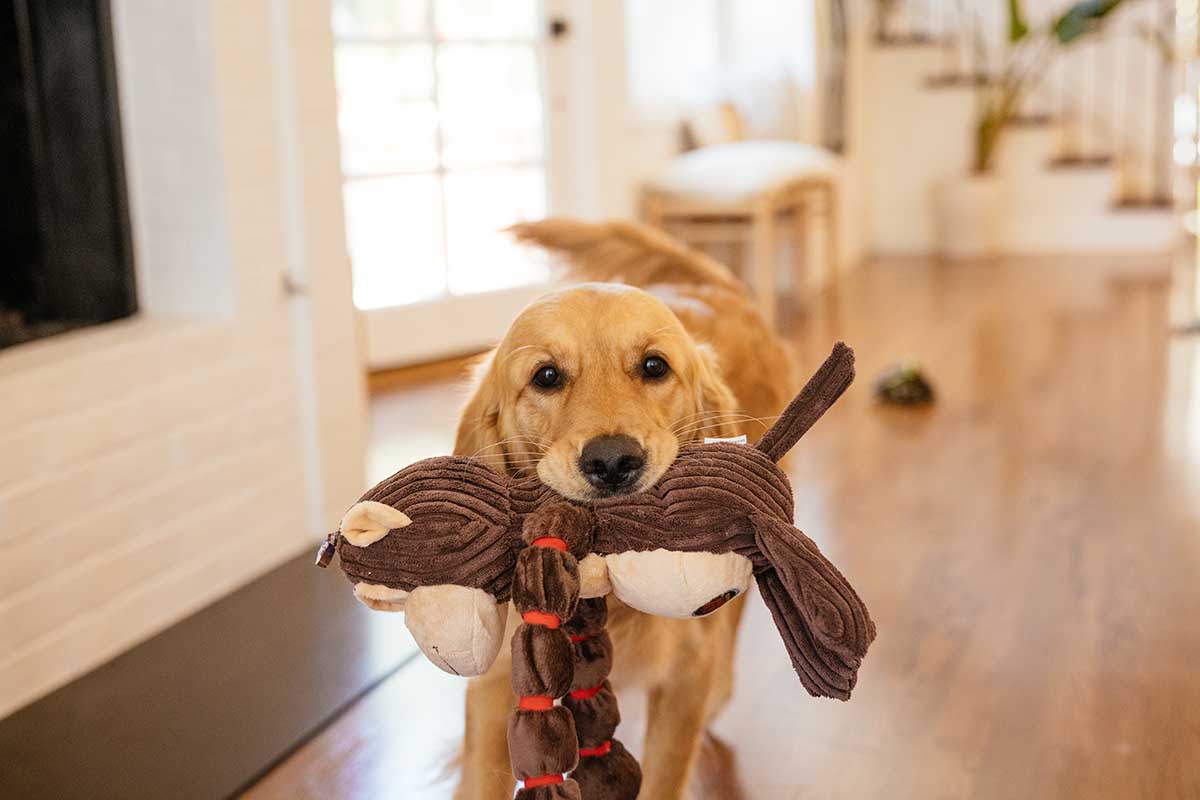You know that uncomfortable sensation of feeling like you need to have a bowel movement, but nothing happens? Well, it’s just as uncomfortable for your dog.
When he can’t pass poop, you might notice him straining to no effect. You might also notice him scooting across the floor as he tries to get some movement happening.
Of course, as a loving pet parent, you want to help your pooch to get things moving again. Before we discuss how to treat constipation in dogs, let’s talk about the causes of constipation. We’ll also take a look at how to know your dog is constipated and when you should be worried.
Common Causes of Constipation
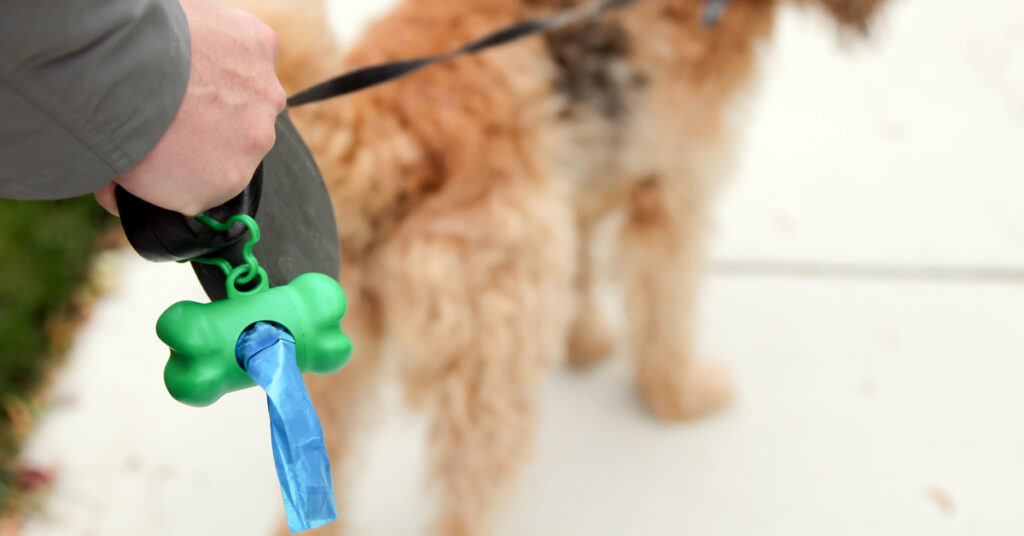
Constipation is defined as the infrequent or difficult passage of feces, also known as stool. Normally, it is a temporary condition that — pardon the pun — passes within a day or two.
Most of the time, a constipated dog will strain to defecate or experience pain when doing so, but there is a severe form of constipation known as obstipation. This is typically chronic constipation associated with a more serious and often irreversible medical condition.
Common causes of constipation in dogs include:
- dehydration
- ingestion of hair
- colon issues
- medication
- anxiety/fear
- intestinal blockage
- thyroid issues
- change in diet
As we discuss what causes constipation, it’s helpful to understand the role of the colon. One of the major roles is water reabsorption. Sometimes the colon does its job too well, and as a result, the fecal matter in the colon becomes hard and dry.
That can make passing stool more difficult. It also causes dehydration in your dog, which can have several other serious health effects. This is one reason your dog needs to have plenty of water available at all times.
While dehydration can cause constipation, it’s also possible that your dog ate something irritating or indigestible. For example, if your dog has long hair or grooms himself excessively, he may become constipated from the ingestion of hair.
There are several other possible causes of constipation as well. These include diseases of the colon, certain drugs, like diuretics, pain relievers, and antihistamines, and behavioral conditions like fear or anxiety that can change your dog’s normal bowel movements.
It’s also possible your dog ingested a foreign body and has an intestinal blockage that is causing the problem. Additionally, certain hormonal diseases like hyper or hypothyroidism can affect the proper function of the digestive tract.
Other causes of constipation
It’s also important to make sure your dog stays active since a lack of exercise can cause constipation. If you have changed his diet suddenly or he managed to ingest new foods, that can also cause problems with bowel movements.
Certain diseases and other health problems like megacolon (an enlarged colon), neurological diseases, pelvic injuries or abnormalities, and tumors in the colon or rectum could all result in difficulty passing stool.
Additionally, if your dog has recently had surgery, that could result in constipation since the side effects of many surgical drugs (painkillers and anesthesia) include the slowing of the wave-like movement in the intestines, known as peristalsis. When peristalsis slows, it allows more time for the colon to reabsorb water and hard stools are the result.
Elderly dogs are also more prone to constipation due to a slow down in the normal rate of peristalsis. Everything gets slower with age! In male dogs, an enlarged prostate can cause constipation, and this tends to happen with age too.
Lastly, as with humans, your dog’s diet can result in constipation if it is lacking in fiber. Additionally, dog food high in bones, bone meal, and other sources of calcium could cause constipation.
What are the Symptoms of Constipation?
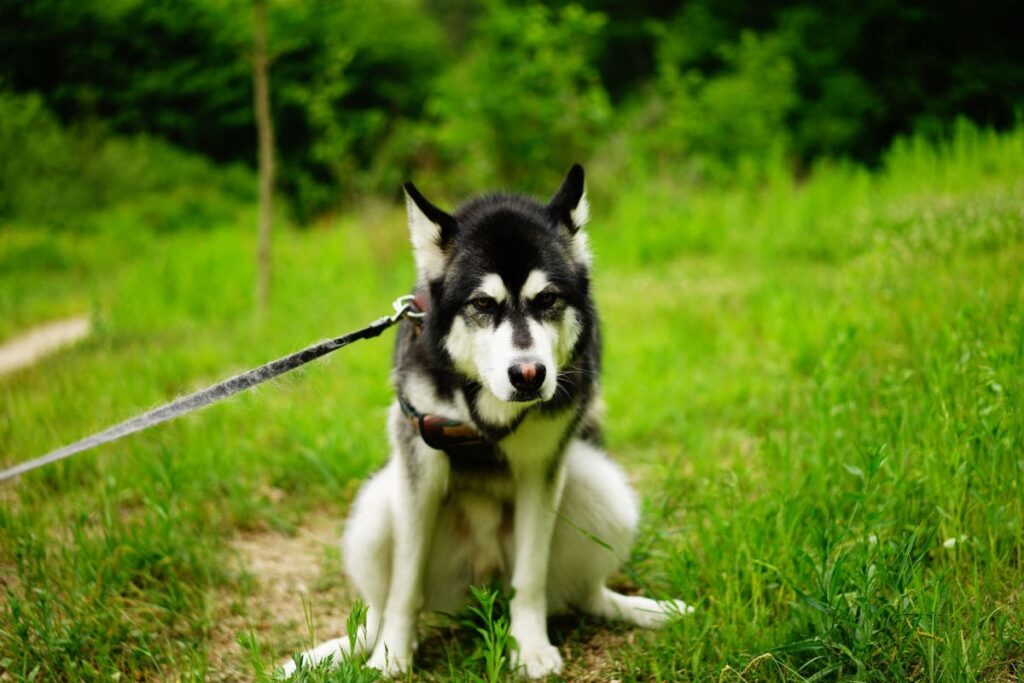
With constipation in dogs, you may notice one or more of several possible symptoms. First, you might notice him straining to defecate. This is called tenesmus, and it results in little or no feces.
Occasionally, your dog might manage to pass a small amount of fecal matter mixed with blood, but no real stool. You might also notice your dog crying out in pain when he tries to defecate. This is called dyschezia.
Whatever dog poop your pooch does manage to produce might appear as hard, dry stools that feel like pebbles. No wonder it hurts!
You might also see your dog circling excessively and scooting. Scooting is when they drag their bottom along the ground. They do this as well when their anal glands are blocked, but it can also indicate constipation.
Some of the other signs of constipation are a tense, painful abdomen, vomiting, and a loss of appetite. If your dog does not have a bowel movement within 48 to 72 hours, you should contact your veterinarian.
You should expect your dog to produce feces at least once a day. Some dogs may have bowel movements after each feeding.
How Is Constipation Treated?
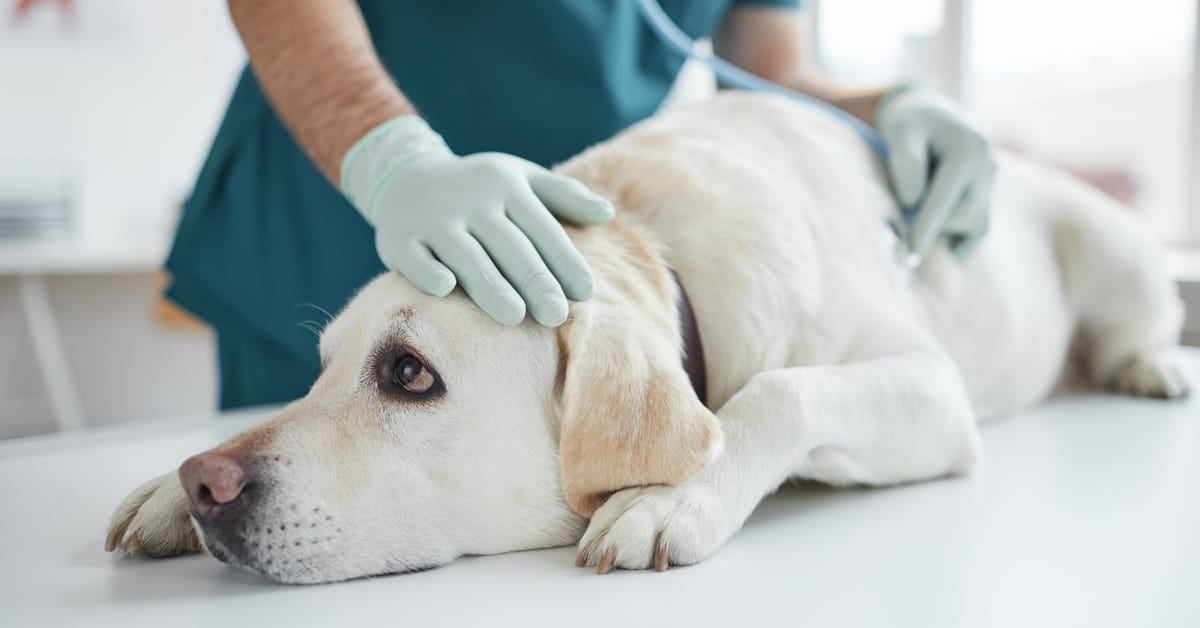
Let’s look at how to treat constipation in dogs. If your dog is having difficulty defecating and you take him to the veterinarian, there are several things your vet may do to diagnose the cause of constipation.
They will take a history and do a physical examination, of course, but they may also take X-rays and do blood tests to look for any evidence of problems in the digestive system.
The treatment options for constipation depend on the cause your vet diagnoses. Most of the time, it’s pretty easy to treat. Your vet might administer a laxative to help soften the stool, or they might use an enema or other medications.
If your dog’s case is more advanced, it could require hospitalization to administer multiple enemas or rehydrate your pooch. Of course, if a foreign object is a cause, that might require surgery or more long-term treatments.
If your dog has a behavioral problem that is the cause of constipation, it could require some behavioral modification in combination with medications and supplements like probiotics after the problem has been corrected.
Home Remedies for Constipation
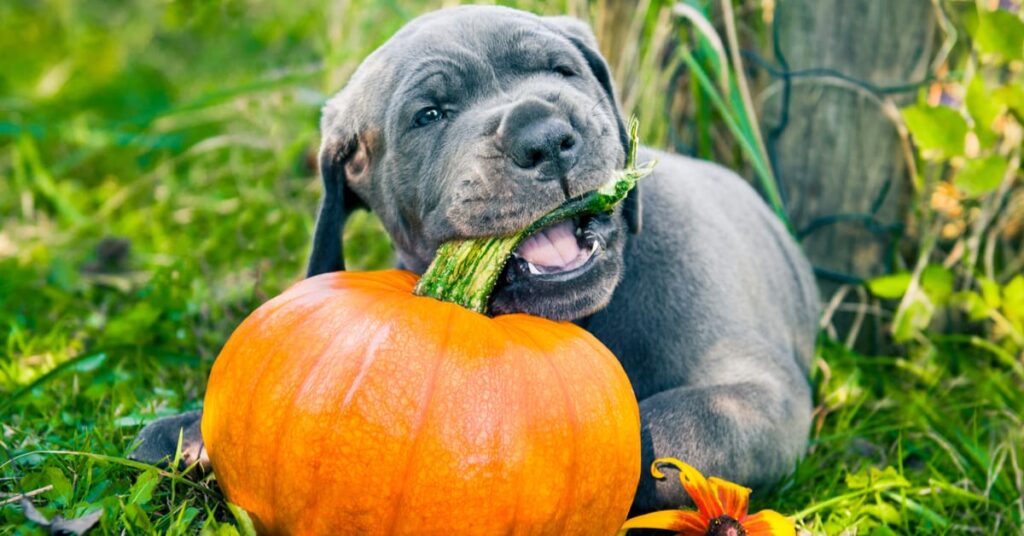
Are there home remedies for constipation? Yes, there are, and many are similar to how you would treat your own constipation. First, you should always make sure your dog stays hydrated. He needs to have plenty of water available at all times.
Then you can give your dog psyllium. This is the active ingredient in Metamucil, and it can work as effectively for your dog as it does for you.
Psyllium is a natural fiber supplement, also known as a prebiotic, that can absorb toxins and relieve constipation, gas, and diarrhea in pets and their people. When you mix it with water, it will swell and stick together, which allows for easier elimination of fecal matter.
According to the American Kennel Club, you can also use canned pumpkin or pumpkin powder to regulate your dog’s digestive tract. You can also make pumpkin treats, but giving raw pumpkin to your dog straight is more effective for helping to get him regular.
Pumpkin is high in both fiber and moisture, which makes it a great treatment for both constipation and diarrhea.
Coconut oil is another great stool softener that you can use to relieve your dog’s constipation. You can either give it to him directly or mix it with his food. You don’t need to give him much to ease his discomfort.
Olive oil is another home remedy you can use to help your dog pass stool. It both softens the stool and lubricates his intestinal tract. You don’t want to give it too frequently because it can cause diarrhea, however. You can also use other types of vegetable oil.
Increase your dog’s fiber intake
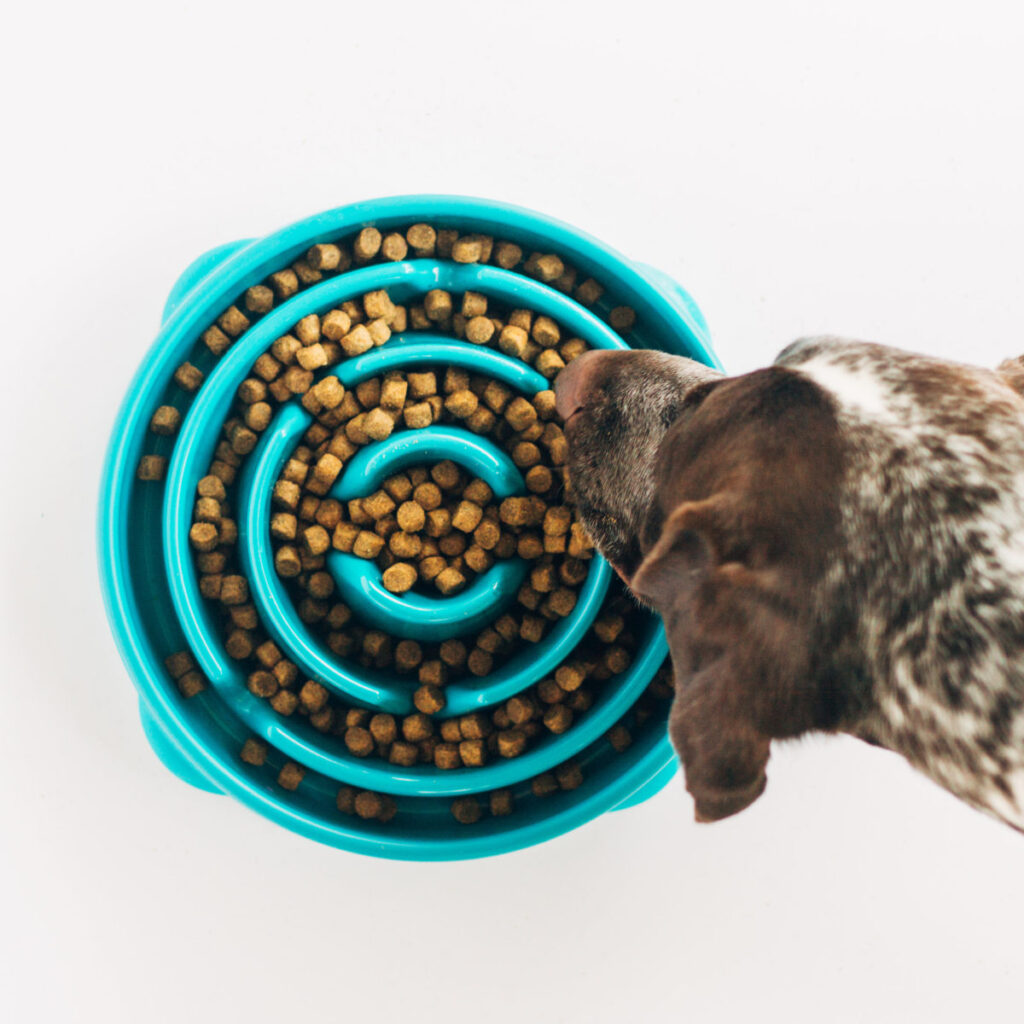
Finally, you can also increase your dog’s fiber intake to ease constipation. The bacteria in your dog’s intestines ferment the fiber and turn it into fatty acids. This aids the flow of material through the intestinal tract.
You can give your dog the psyllium to increase his fiber intake, but there are other sources of fiber you can use too. These include giving your dog certain whole foods and vegetables, such as the following:
- Blueberries
- Apples
- Peaches
- Carrots
- Raspberries
- Green Beans
- Peas
How to Treat Constipation in Dogs: Final Thoughts
As with humans, your dog can sometimes suffer from constipation. It can be an easy thing to fix, but if it persists, it could indicate a bigger health problem. There are several home remedies you can try, but if your dog doesn’t pass stool for more than 48 – 72 hours, it’s time for a trip to the vet.
To prevent constipation in the future, you might supplement your dog’s diet with more fiber. It’s also vital to ensure he has plenty of water to drink so he won’t become dehydrated. This will help ensure you can keep the flow going for your best friend.
